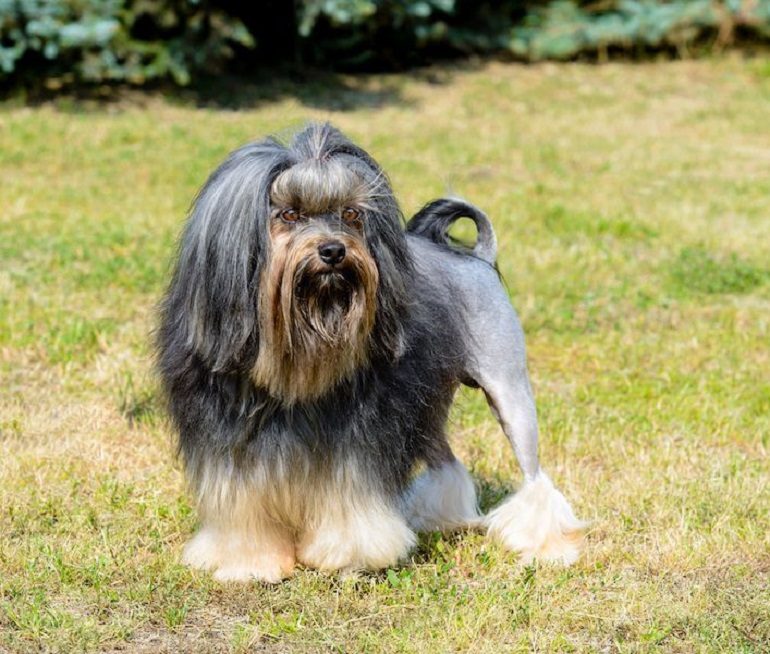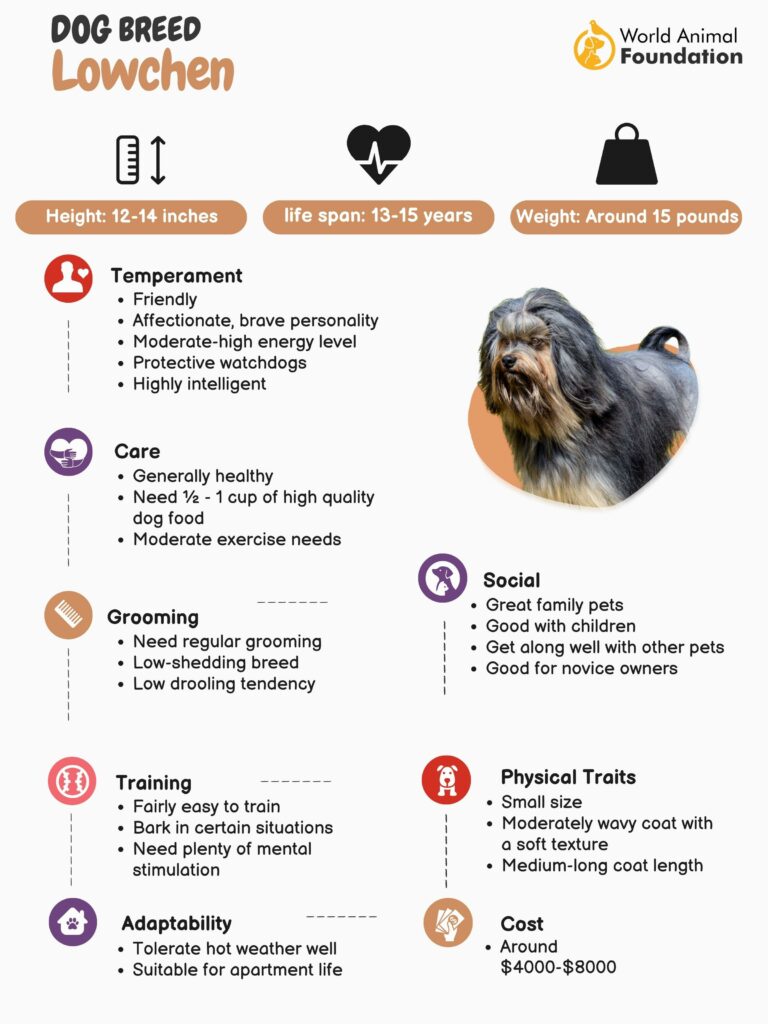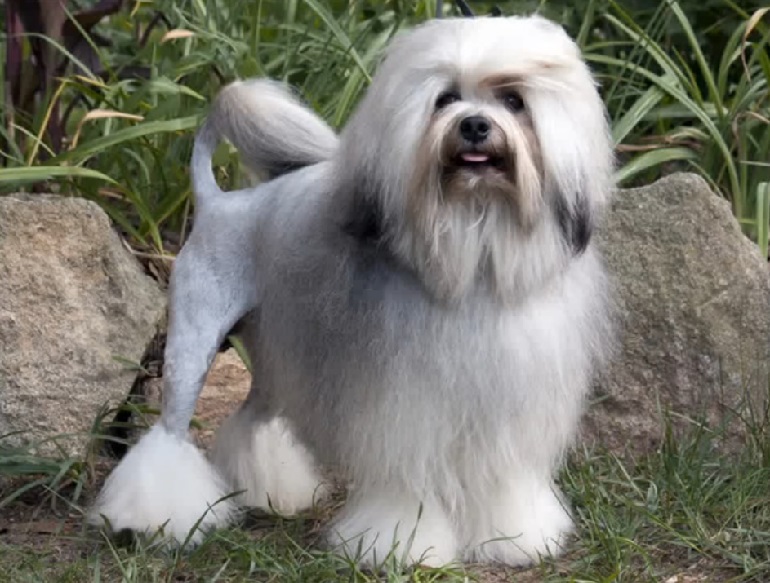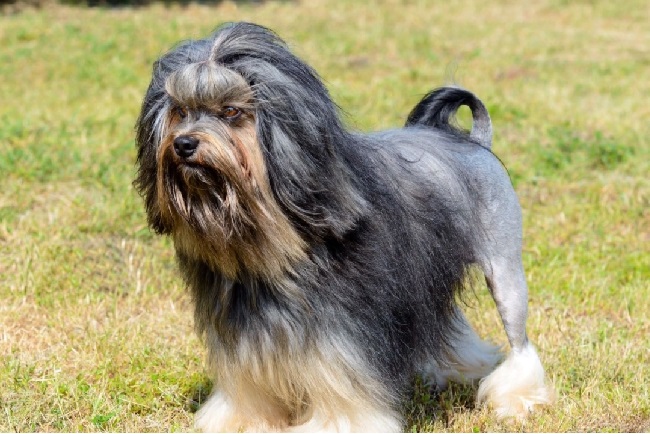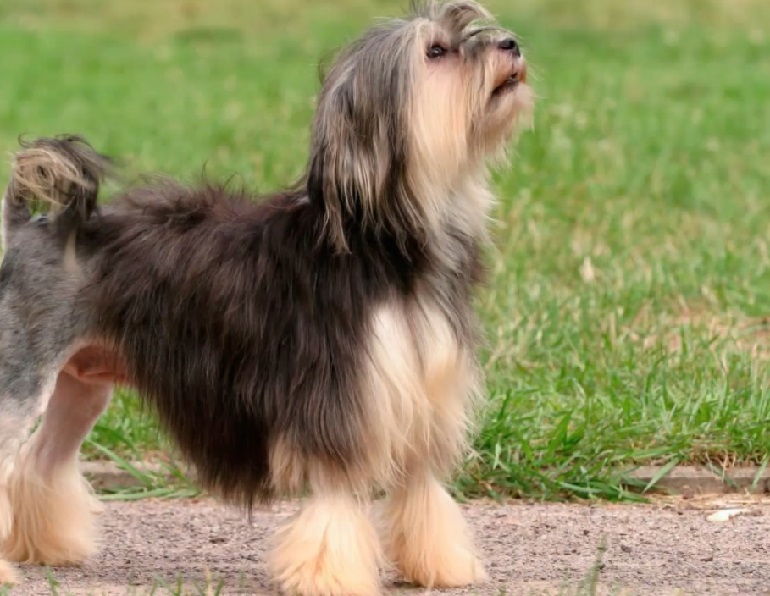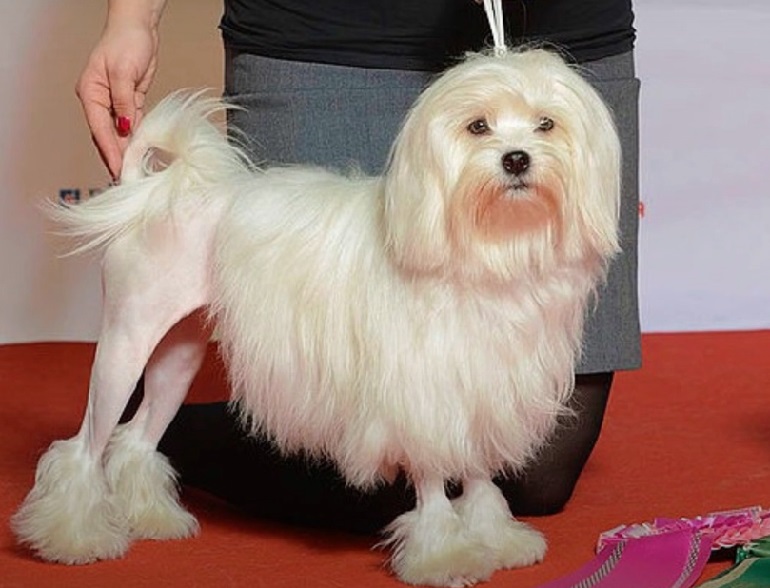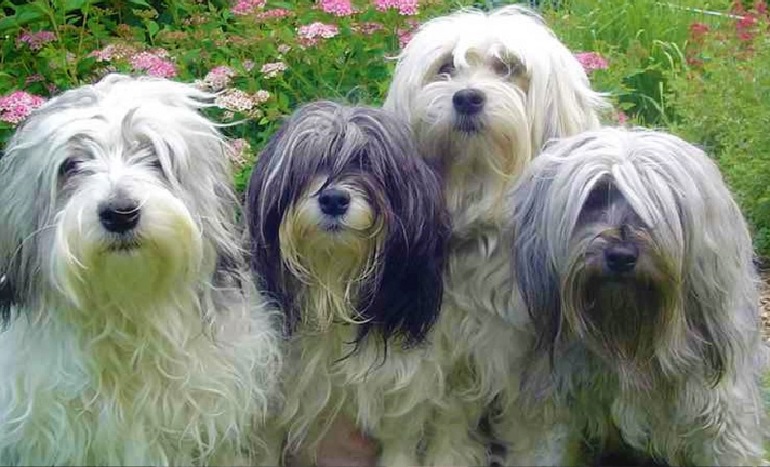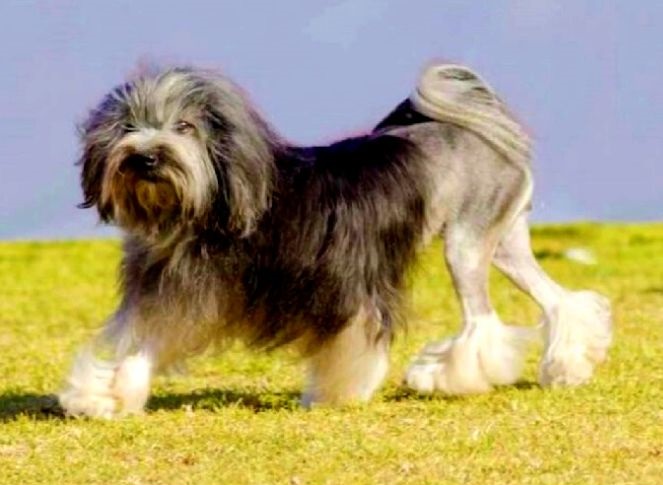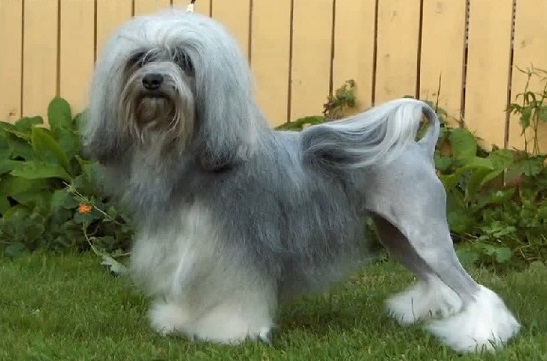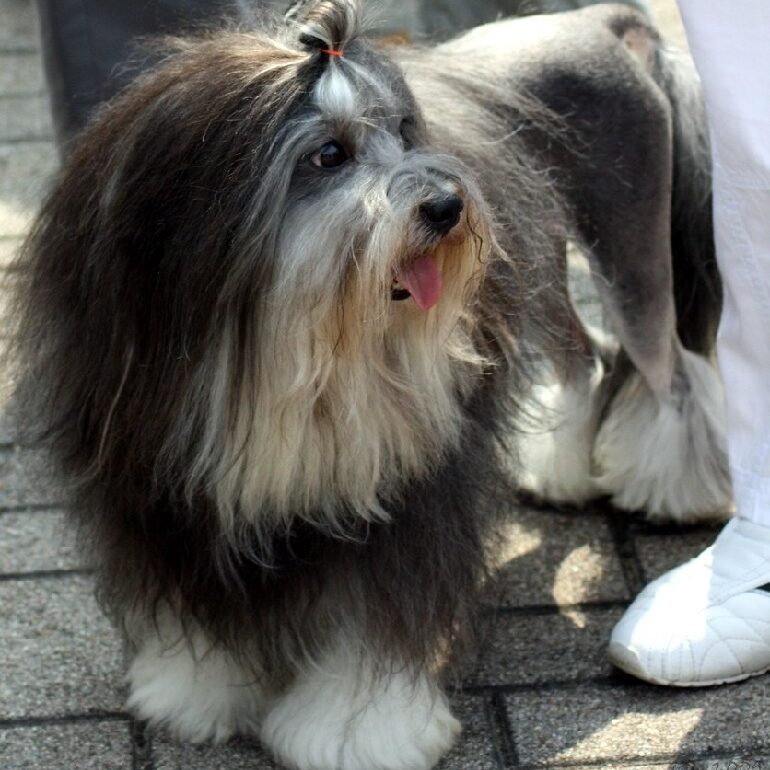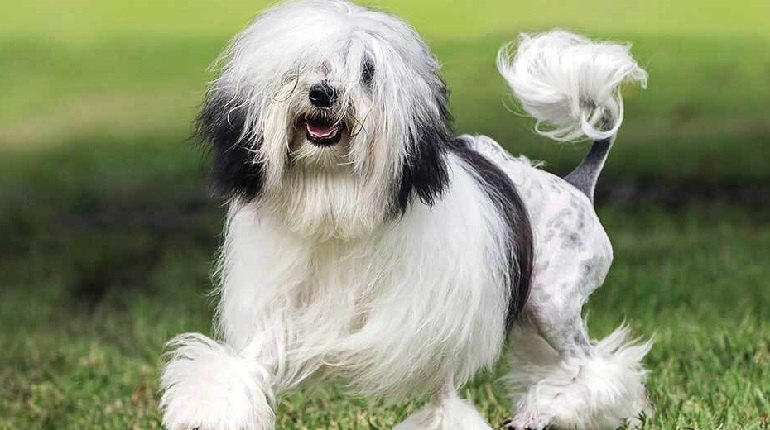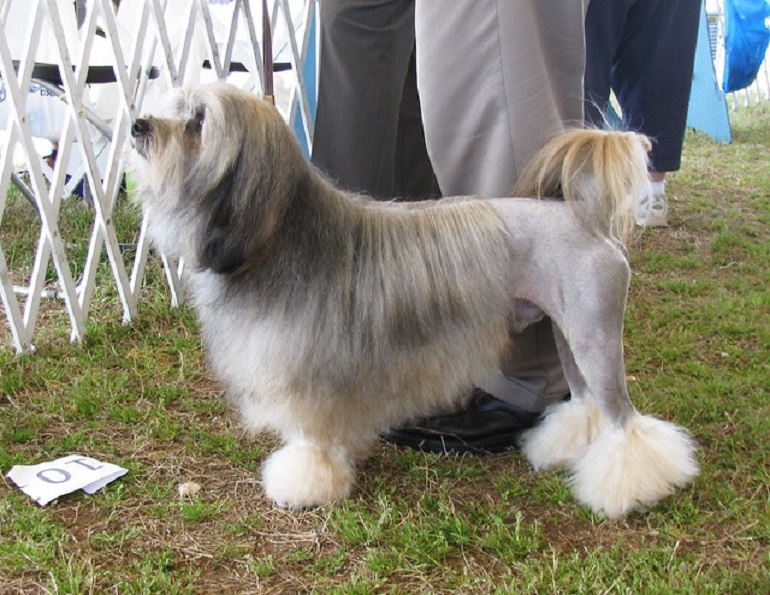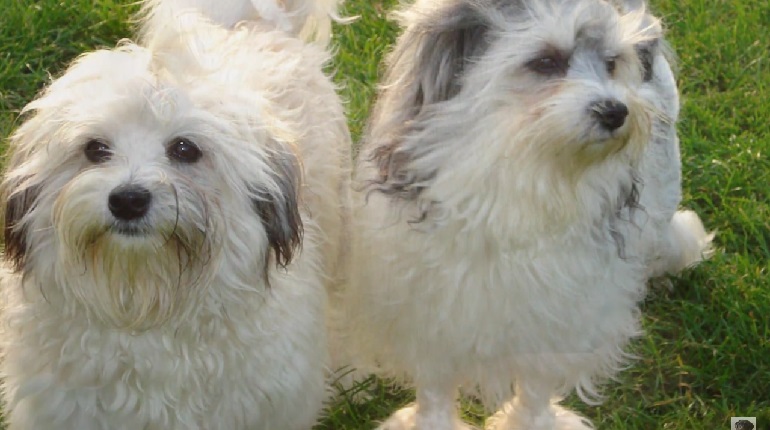Beneath the Lowchen’s distinctive lion-esque haircut beats the heart of a playful, affectionate companion. This rare breed, nicknamed the “Little Lion Dog,” boasts a rich history and a charming personality that captivates all who meet them. Far more than just a fashionable trim, the Lowchen offers intelligence, adaptability, and a zest for life packed into a small, sturdy frame. Dive in to discover the fascinating world of this unique breed, from its royal origins to its modern-day charm as a beloved family pet.
Overview
Lowchens are small dogs known for their positive attitude and playful energy. This wonderful breed is also known as the little lion dog, and this name suits their brave personality perfectly.
They have mysterious origins and are thought to have originated from somewhere in Eastern Europe. This breed has been around for over 500 years, but finding a Lowchen puppy to buy is no easy task.
Obedience and agility dog competitions are the perfect sports for these pups. The little lion dog is intelligent and energetic, mastering new skills and tricks in no time.
We are going to delve deep into the history of the Lowchen and share everything there is to know about this rare dog breed. In this article, we will cover everything from training to exercise needs and common health concerns.
About the Breed
Lowchen is a companion dog breed originating from Eastern Europe. In German, Lowchen translates to ‘little lion dog,’ and these dogs are just as brave and bold as the mighty animals they are named after. Although considerably smaller than a lion!
Not only does their name translate to ‘little lion dog,’ but the most popular coat clip for a Lowchen is also the lion clip.
Like many other smaller dogs, Lowchens have a big personality. If you are looking for a playful, loving, and outgoing dog, a Lowchen puppy won’t let you down.
There is no chance of feeling like your new furry friend doesn’t like you. Lowchens are affectionate and loyal and, despite their size, are loud and protective watchdogs.
To keep bad behavior at bay, they need to be properly socialized early on – but we will discuss that later.
Originally bred as companion dogs, Lowchens love to spend all of their time with their humans. In fact, separation anxiety is a common problem for these small and loyal dogs. A Lowchen will love you so much that it will bark and become distressed if left alone without you for too long.
They have a life expectancy of 13 – 15 years, so you can expect your furry friend to be in your life for a long time.
Vital Stats of the Little Lion Dog
Here is a quick look at the vital stats of the adult dog.
- Dog breed group – Nonsporting group
- Height – 12 – 14 inches
- Weight – 15 pounds
- Lifespan – 13 – 15 years
History of Lowchen
The popular belief is that Lowchens originated somewhere in Eastern Europe, but the exact country of their creation is a mystery. There is some dispute as to whether these little dogs come from Russia or countries closer to the Mediterranean.
The name Lowchen is German, and the breed was popular in Germany, France, and other Northern Europe countries for centuries. Initially bred as companion dogs for the wealthy, Lowchens can be found in medieval paintings dating as far back as the 15th century.
Over the years, they were popular little dogs, and their lion clip coats would get heads turning during their daily dog walks. Unfortunately, by the end of the 19th century, the Lowchen breed had lost its appeal, and the little lion dog became close to extinction.
Lowchens were saved largely thanks to the efforts of a Belgium breeder, Madame Bennert. While Bennert’s attempts to revive the endangered breed were successful, it still remains a rare breed today.
In 1971, the first Lowchen dogs were introduced to the USA, and the Löwchen Club of America was formed. These intelligent and playful dogs first entered the American Kennel Club registry in 1995 and were approved into the non-sporting group in 1999.
Traits and Characteristics
The Lowchens are known for being affectionate and playful. These dogs have a fun and outgoing personality but can have a peaceful demeanor too.
Their most recognizable characteristic is their coat. When sporting the ‘lion clip,’ Lowchens really do look like little lions – no fur on their hindquarters, with a big mane of fur around their adorable face.
They will want to spend as much time as possible by your side and bark whenever they feel you need protection.
Appearance
Their appearance is both unique and adorable. Little lion dogs with the lion clip are easy to spot and tell apart from most breeds – that’s if you have done your small dog research, of course.
There is no denying that Lowchens have a strong and sturdy physique, but they have adorable little faces too. If you want to easily pick one out in a room full of other dogs of similar size, this deep dive into the breed’s appearance should help.
Size
Lowchens are classed as small dogs and rarely grow to weigh more than 15 pounds. The Lowchens are also small when it comes to their height, averaging at no more than 12 to 14 inches.
There is nothing better than cuddling with an affectionate little dog. These dogs are small enough to be cuddly but not so small that are scarily delicate. The little lion dog is the perfect size for apartment life.
Coat
It is the Lowchen coat that makes it stand out from all the other dogs in the park. Lowchens have a long and wavy coat. Their fur grows long over their face and has a soft texture.
A Lowchen will hardly shed and is known as a hypoallergenic dog breed. So if you have allergies, this dog is unlikely to cause any issues.
Color
Little lion dogs are available in a whole host of colors. According to the American Kennel Club, there are 18 breed standard colors for the Lowchen.
Some coat colors for these little dogs include silver sable, black brindle, gold, red, and chocolate.
Markings
Often these attractive dogs will have markings in different colors, and their coat can have different color combinations.
Lowchens can have tan point, silver, or cream marking or have a parti-color coat. You really are spoilt for choice when it comes to a Lowchen’s coat.
Temperament and Personality
There is no denying that Lowchens are adorable dogs, but what is their temperament like? If you are interested in this breed, we are pleased to tell you that they are a loving dog breed with affectionate personalities.
The Lowchen breed originated as a companion dog breed for aristocrats, and they continue to make loyal and friendly pets today. Lowchens love their owners so much, and they want to spend as much time as possible with you.
They take their job as a companion dog extremely seriously. If you work for several hours a day, your Lowchen may become anxious and lonely in your absence. These small dogs need a lot of love and will want as much of your attention as possible.
Lowchens are not only loyal, they are protective too. Their size may not be intimidating to strangers, but that won’t stop them from barking whenever they perceive a threat – even if that ‘threat’ is just the mailman.
They enjoy learning new tricks and will appreciate lots of mental stimulation. Lowchens perform well in competitions and love to show off their latest trick.
Beware of their stubborn streak! Lowchens love to please their owners but can be strong-willed occasionally.
This breed loves to play, but they generally have a peaceful and relaxed temperament (apart from when they are barking at the mailman, of course).
Health and Care
No one likes to think about their dog getting sick, right? Sadly for us animal lovers, dogs are not immune to all health problems, and many breeds inherit specific diseases and illnesses.
Lowchens are strong and sturdy dogs but can suffer from several health issues. When compared to other dogs, Lowchens usually have good health.
However, if you are thinking about adopting a Lowchen and are concerned about the dog’s health, you can check with organizations such as the canine eye registry foundation, which registers a breed that has cleared its tests.
The clearance for elbow dysplasia, hypothyroidism, and Von Willebrand’s disease is usually provided by the Orthopedic foundation. You can also get your dog from reputable breeders that can provide health clearances after conducting tests recommended by the National Breed Club.
Here is a list of health issues they are prone to:
Cataracts
Water and protein are found inside a dog’s eyes. When the proteins begin to clump together, they form a cloudy appearance and cover the lens of the eye over time.
Cataracts can cause your Lowchen to become completely blind. To stop the worst-case scenario from happening, take your dog to the veterinarian as soon as you notice a cloudy fog in their cute little eyes.
Progressive Retinal Atrophy (PRA)
PRA is another eye condition that is known to affect Lowchens. Progressive retinal atrophy will cause the retinal cells in a dog’s eyes to degenerate over time. PRA can also lead to blindness.
If your dog is showing signs of struggling with their vision, it is important to get them seen by a vet as soon as possible.
There is, unfortunately, no cure for PRA, but a vet will be able to accurately diagnose whatever disease or illness is impacting your Lowchen’s eyesight.
Patellar Luxation
Lowchens are also known to be prone to patellar luxation, also called slipped stifles. This condition is common in many other dogs and is caused when the kneecaps move out of position.
A slipping kneecap will lead to a Lowchen developing a limp and a bowlegged stance. Patellar luxation can right itself in mild cases, but often surgery will be needed to realign the knee cap.
Hip Dysplasia
This condition is more commonly found in large dogs, but it can also affect small breeds. This skeletal condition occurs when the ball and socket joint does not develop correctly in a dog’s hip.
Lowchens suffering from this condition, will experience pain and walking difficulties over time. Hip replacement surgery can help this problem, but it will depend on the severity of your Lowchen’s condition.
Grooming
Besides looking out for these common health conditions, you will also need to groom your Lowchen regularly.
This breed has a low-shedding coat and will only need a quick brushing every couple of days. If you want the long coat of your petit chien lion to have the conventional lion clip, they will need to be trimmed every 4 to 6 weeks.
Daily brushing your dog’s teeth is important, as well as checking there are no mites or dirt in their ear canal.
Diet And Nutrition
If you want your doggo to live a long and healthy life, it is important that you are providing them with the right nutrition. Lowchens are strong dogs and will need a good quality diet to keep them this way.
Like many other small dog breeds, Lowchens are known for becoming overweight. To prevent obesity, it is important that your dog eats a well-balanced diet of healthy fats, ground bones, vegetables, and protein.
Cheap grocery store kibble may be best for your wallet, but it is rarely the best option for your dog. Raw dog food is often considered a more canine gut-friendly diet than kibble, as it has less difficult-to-digest ingredients.
Some pet parents choose to pamper their pups and only feed them home-cooked meals. If you are cooking for your Lowchen, ensure everything is thoroughly cooked to avoid making your dog sick. It is always best to check with your vet to find out what the best food is for your dog.
Lowchens love a doggy treat just as much as other animals. Don’t spoil them too much, though! Remember what we said earlier, Lowchens are prone to obesity and will overeat when given the chance. Try to limit treats as much as you can.
Training and Exercise
Lowchens are intelligent dogs and can pick up new tricks and commands easily. This eager-to-please and outgoing breed will enjoy making their owners happy.
Don’t raise your voice at your Lowchen, they will not appreciate it, and shouting will not lead to better behavior. Instead, use positive methods and praise your Lowchen every time they do something right.
Stubborn at times, they can be tricky to housebreak. Stay calm and patient, and they will get there in the end.
As tiny watch dogs, this breed needs to be socialized at a young age. If you don’t spend time socializing your Lowchen, they are likely to bark at anything and everything.
Some dog lovers like long hikes with their canine companion, but others want a dog that doesn’t need much exercise. Lowchens fall into the second category. With lots of energy but only little legs, they only need to be walked for around half an hour a day.
If you want to walk your dog for slightly longer, little lion dogs have a lot of energy and can handle long walks. They may not need to go on an hour-long hike every day, but that doesn’t mean they wouldn’t enjoy the extra exercise.
Relationship with Humans
Lowchens are affectionate and loving. Your little lion dog will form a strong bond with you and all members of the family.
If you have young kids, your children and Lowchen puppy will likely become the best of friends. These dogs are sturdy enough to play with children without becoming injured and energetic enough to enjoy playtime as much as your little humans.
As we mentioned previously, Lowchens are bred to be companions through and through and can become distressed when left home alone. It is important that you take your daily schedule into account before committing to a Lowchen puppy.
They will need early socialization to prevent them from barking too much at strangers. This breed of small watchdogs will want to protect their humans at all costs.
Lowchen Fun Facts
- The Lowchen breed was on the brink of extinction following the world wars. It was not until a Belgium breeder made it her mission to save the breed in 1947 that the Lowchen population began to grow again.
- When Lowchens have their coat styled in the lion trim, they do look like mini lions! In the traditional lion’s clip, a Lowchen’s fur is clipped short all over their body, leaving a mane of long fur around their face and a plume left on their tail.
- Lowchens are as brave as the lions they are named after. Don’t let their small size fool you, these courageous dogs make loyal and noisy watchdogs.
- Originally bred for royalty, these companion canines have been at the side of the wealthy ever since the 15th century. This dog breed can be found pictured in tapestries that are over 500 years old.
- The exact origins of the Lowchen dog breed are unknown. It is thought that these energetic dogs are related to bichon breeds like the Havanese, Maltese, or Bichon Frise.
Pros and Cons of Owning a Lowchen
When considering buying a dog, it is always important to weigh the pros and cons first. You may think the lovable Labrador is for you, just to discover that they shed too much and you don’t have the time to meet their exercise needs.
If you are thinking of introducing a Lowchen into your life, here are the pros and cons of this breed to help you make the best decision:
Pros
- The long Lowchen coat is low-shedding and considered to be allergy-friendly.
- Only needs around 20 minutes of exercise a day
- Intelligent and easy to train
- Enjoys spending time with children
- Gets on well with other pets and family members
- Is a playful and affectionate companion dog
- The small size is suitable for apartment living.
Cons
- Can suffer from separation anxiety when left alone for too long
- Will bark often
- Lowchens are rare, and puppies can be hard to find.
- Has a high price tag and can cost over $4000 for a Lowchen puppy
FAQ’s
What is the Origin of Lowchen?
The exact origins of the Lowchen breed are unknown. The little lion dog is thought to come from Eastern Europe, its roots believed to be somewhere between the Mediterranean and Russia. During the 1500s, Lowchens became popular all across Europe and were often owned by wealthy aristocrats.
Do Lion Dogs Share a Good Bond with Kids?
Lowchens are affectionate and outgoing dogs who love to play. This breed enjoys spending time with all members of the family and will get on well with children. The little lion dog is loving and will form strong bonds with children and people of all ages.
What’s the Cost of Owning a Lowchen Dog?
Lowchen puppies are expensive and can cost thousands of dollars. Lowchens are a rare breed, which is why they have such a huge price tag. If you want one of these dogs, you should expect to pay approximately $4000 – $8000 for a Lowchen puppy.
Do Lowchens Bark a Lot?
This is not a quiet breed, Lowchens will bark when they are excited, worried, bored, lonely, or seeking attention. It is also not unusual for a Lowchen to bark when someone knocks on the door or when they are playing.
Conclusion
The Lowchen is an affectionate, energetic, and protective small dog breed. Best known for their long non-shedding coats, styled in the lion clip, these dogs are just as cute as they are intelligent.
The adorable traits of this small breed mean they are a firm favorite for dog lovers of all ages. A Lowchen will enjoy playing and loves getting plenty of mental stimulation too.
Pet parents will not need to worry about complicated grooming. A Lowchen only needs to be brushed every few days and bathed every 2 or 3 weeks. If you want your Lowchen to sport the traditional lion clip, you may want a professional groomer to do the job for you.
We hope our article has shown you that the Lowchen is a wonderful breed and will be a loyal and loving addition to your family.
Don’t forget these key points: Lowchens need to be socialized early, or they will bark excessively, they can suffer from separation anxiety, and they will want to be glued to your side at all times.
So, if you are looking for a playful Velcro dog, this may be the breed for you!
Related Guide:
- Pekingese
- Pembroke Welsh Corgi
- American Foxhound
- Silky Terrier
The Löwchen, with its charming lion cut and playful personality, is truly a delightful companion. Though small in stature, this breed possesses a big heart and an adaptable nature, making it suitable for various living situations. While requiring regular grooming to maintain their signature look, the Löwchen’s intelligence and affectionate temperament make the effort worthwhile. From its rich history to its present-day appeal, the “Little Lion Dog” continues to capture the hearts of dog lovers worldwide, proving that big personalities often come in small packages.

